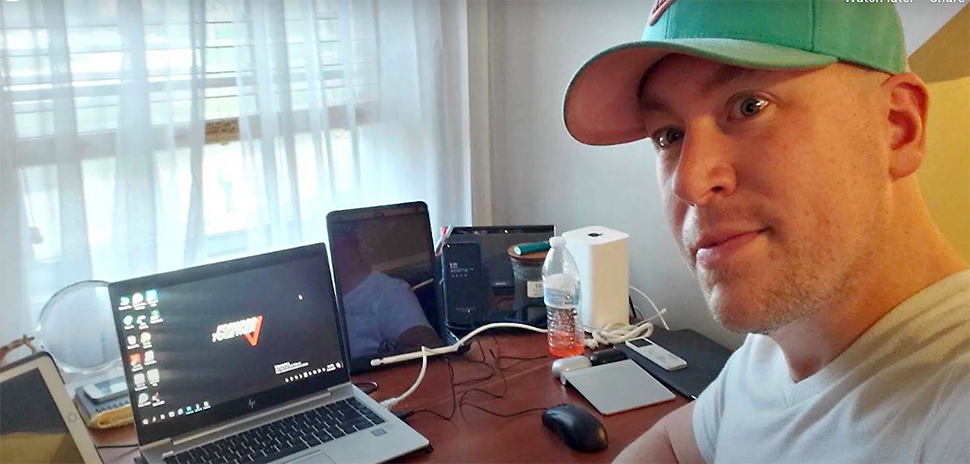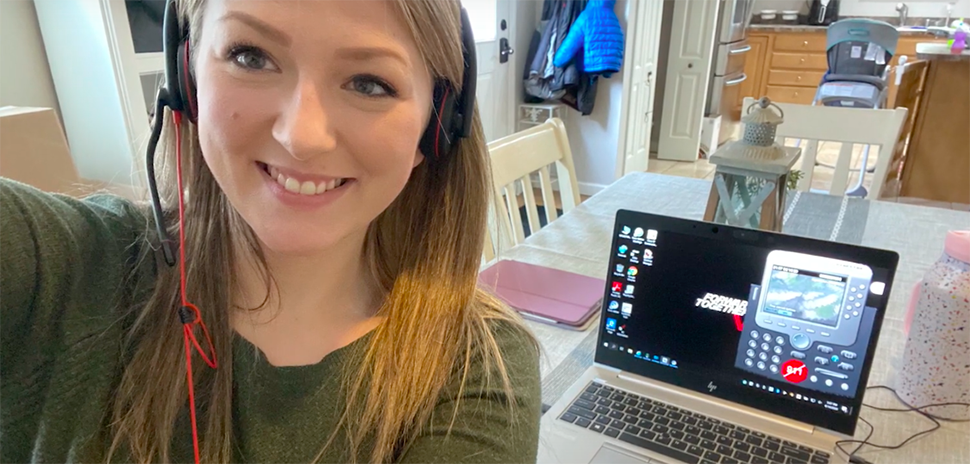Despite a historic economic downturn that has forced companies nationwide to cut staff, Verizon has managed to shield employees from job displacement.
Rather than make cuts when stores were temporarily closed, the telecommunications company retrained nearly 20,000 team members for other roles within the organization. The effort focused primarily on Verizon’s store-based employees, a group at particular risk for displacement as 70% of the company’s storefronts have experienced temporary closure.
The ambitious retraining program has benefited more than Verizon employees. In fact, the effort was driven by an abrupt shift in customer demands. As storefronts shuttered, customers directed urgent needs to other Verizon channels, such as telesales and customer service.
“We always talk about the need to show up where our customers are, and the pandemic presented us with a real-time example of this need,” said Michelle Miller, Vice President of Consumer Sales for Verizon. “This was a unique opportunity for employees to develop new skills and still help our customers without the risk of abandoning a job they found comfort in.”
As such, the retraining efforts were geared toward providing the best service for customers while ensuring the well-being of staff members. To assist the effort, Verizon established a cross-functional team consisting of operations, learning and development, human resources, and IT to assess emerging customer needs and existing employee skills. Ultimately, this balance allowed Verizon to continue helping its customers while redeploying staff members in familiar roles.

This is one of the many Verizon employees’ WFH stations. [Image: Courtesy Verizon via YouTube]
Retraining primarily focused on equipping store-based staff with the relevant digital and technological skills needed to succeed in a remote work environment, while the core job functions of most retrained employees—assisting customers and providing them with the product most aligned with their needs—remained.
Another critical enabler of Verizon’s robust retraining effort was the company’s home-based work platform, which was partially introduced in 2018 to allow certain customer service employees to work from home. This platform proved to be crucial amid the COVID-19 pandemic, facilitating a swift transition to work-from-home for all employees, and the training and redeployment of store-based staff members in remote-enabled positions.
“The training was put together in a way that valued our skills, and even built on them,” said one Connecticut-based employee. “In seven hours, I was able to have a relatively strong working knowledge of how to do the different things we needed to do, and do it remotely.”

John S. used Verizon’s retraining program as an opportunity to learn. [Image: Courtesy Verizon via YouTube]
Verizon’s dedication to upskilling extends beyond its employees. Through the company’s recently announced corporate responsibility plan, Citizen Verizon, Verizon lays out how it intends to leverage its resources, technology, and staff to drive positive economic, social, and environmental progress. Of particular note are the pillars of Digital Inclusion and Human Prosperity, which respectively reflect Verizon’s commitment to providing 10 million youth and 1 million small businesses with digital skills training and preparing 500,000 individuals for jobs of the future through skills training and job advancement opportunities by the year 2030.
The plan, announced in July, is already afoot in North Texas schools. Through Verizon Innovative Learning, an initiative designed to address barriers to digital inclusion in Title I middle schools, students in Dallas ISD and Irving ISD have received free devices, internet access, and technology-driven curriculum—all of which have only increased in importance amid the pandemic—since 2012. The Citizen Verizon plan will sustain the company’s investment in this initiative and promote new opportunities to engage students in digital skills training.
A version of this story first appeared on the Dallas Regional Chamber site. Dallas Innovates is a collaboration of D Magazine Partners and the Dallas Regional Chamber.
![]()
Get on the list.
Dallas Innovates, every day.
Sign up to keep your eye on what’s new and next in Dallas-Fort Worth, every day.





























